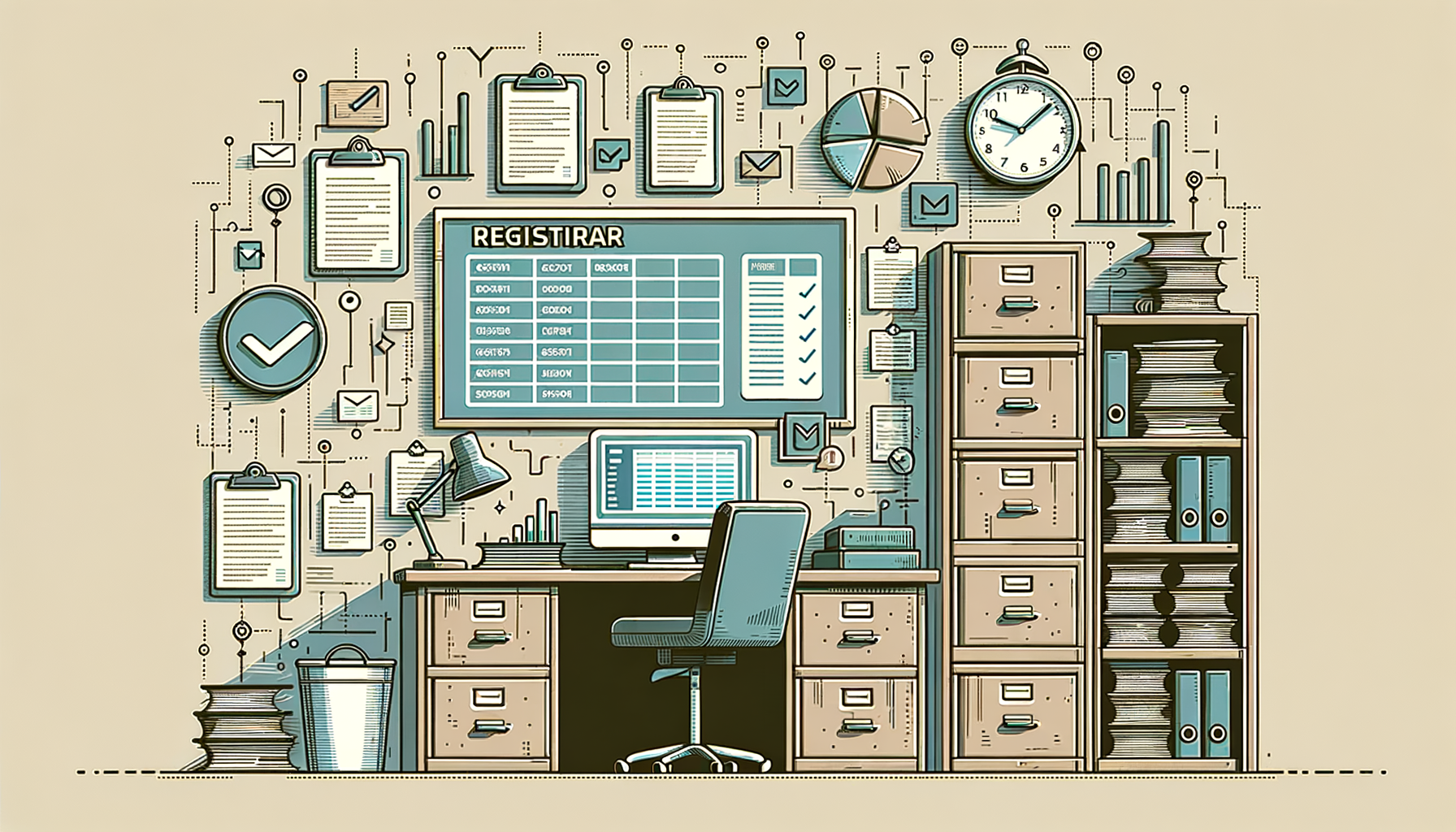The role of a Registrar is a crucial position within various organizations, especially in educational institutions, healthcare facilities, and corporate environments. Registrars are responsible for managing essential records, ensuring compliance with regulations, and facilitating smooth administrative operations. For those interested in a career that merges organizational skills with meticulous attention to detail, understanding the Registrar role can lead to a rewarding and stable profession.
Understanding the Role of a Registrar
The Registrar is pivotal in maintaining the integrity and accuracy of an organization's records. This role supports compliance with legal and regulatory requirements, enhances operational efficiency, and contributes to the institution's overall growth and reputation. Registrars are often the backbone of administrative processes, ensuring that data is managed securely and systematically.
- Maintaining and updating official records and databases with precision and confidentiality.
- Coordinating with various departments to ensure compliance with institutional policies and external regulations.
- Managing enrollment, registration, or certification processes depending on the industry.
- Generating reports and providing data analysis to support decision-making and strategic planning.
- Handling inquiries and providing support to students, clients, or stakeholders regarding records and procedures.
Continuous learning and professional development are crucial for Registrars to stay current with evolving regulations, technology, and best practices. This commitment helps them maintain high standards and adapt to changing organizational needs.
Key Skills and Qualifications for a Registrar
The Registrar role demands a blend of technical expertise and strong analytical abilities. Professionals in this field must be detail-oriented, organized, and capable of managing large volumes of data with precision. Key responsibilities include overseeing record-keeping systems, ensuring compliance with legal standards, and facilitating communication between departments. Qualifications typically include a degree in administration, business, or a related field, along with experience in data management and regulatory environments. As technology advances, Registrars who develop skills in database software and data security will find greater opportunities for career growth and advancement.
- Proficiency in database management and record-keeping software
- Strong organizational and multitasking abilities
- Knowledge of regulatory compliance and data privacy laws
- Excellent communication and interpersonal skills
- Analytical thinking and problem-solving capabilities
- Adaptability to new technologies and continuous learning mindset
Experience and Industry Knowledge
Experience plays a significant role in becoming an effective Registrar. Candidates typically need a background in administrative roles with a focus on data management and compliance. Core tasks often include managing registration systems, auditing records for accuracy, and collaborating with legal or regulatory bodies. Essential soft skills include attention to detail, reliability, and the ability to work collaboratively across teams. Effective Registrars are also proactive problem solvers who can handle confidential information with discretion and professionalism.
- Proven experience in record management or administrative support roles
- Familiarity with industry-specific regulations and compliance standards
- Strong interpersonal skills for teamwork and stakeholder communication
Top Employers for Registrar Worldwide
Knowing the top employers for Registrars can help job seekers target their applications and understand where demand is highest. These organizations often offer structured career paths, competitive salaries, and opportunities for professional development. Here are five leading employers globally that frequently hire Registrars:
- Harvard University – A prestigious institution that employs Registrars to manage student records and academic compliance.
- Mayo Clinic – A renowned healthcare organization requiring Registrars to handle patient records and regulatory documentation.
- Government Agencies – Departments focused on public records, licensing, and certifications often employ Registrars to maintain official data.
- IBM – A multinational corporation with complex HR and compliance needs, employing Registrars for data management.
- American Bar Association – A professional association that manages certifications and memberships, frequently hiring Registrars.
Frequently Asked Questions
- What qualifications do I need to become a Registrar?
Most Registrar positions require a bachelor’s degree in administration, business, or a related field, along with experience in data management and compliance.
- Is prior experience necessary to enter this career?
Yes, experience in administrative roles, especially those involving record-keeping and regulatory compliance, is highly valued.
- What are the key skills for success as a Registrar?
Attention to detail, organizational skills, proficiency with database software, and strong communication abilities are essential.
- Can a Registrar advance to higher positions?
Absolutely. With experience and additional qualifications, Registrars can move into senior administrative roles or specialize in compliance and data management.
- What industries hire Registrars the most?
Education, healthcare, government, corporate sectors, and professional associations are the primary employers of Registrars.
Conclusion
The Registrar role is a cornerstone of organizational efficiency and compliance across various industries. For job seekers, it offers a stable career path that combines administrative expertise with opportunities for growth. By developing key skills, gaining relevant experience, and targeting top employers, aspiring Registrars can build a successful and fulfilling career in this essential field.






